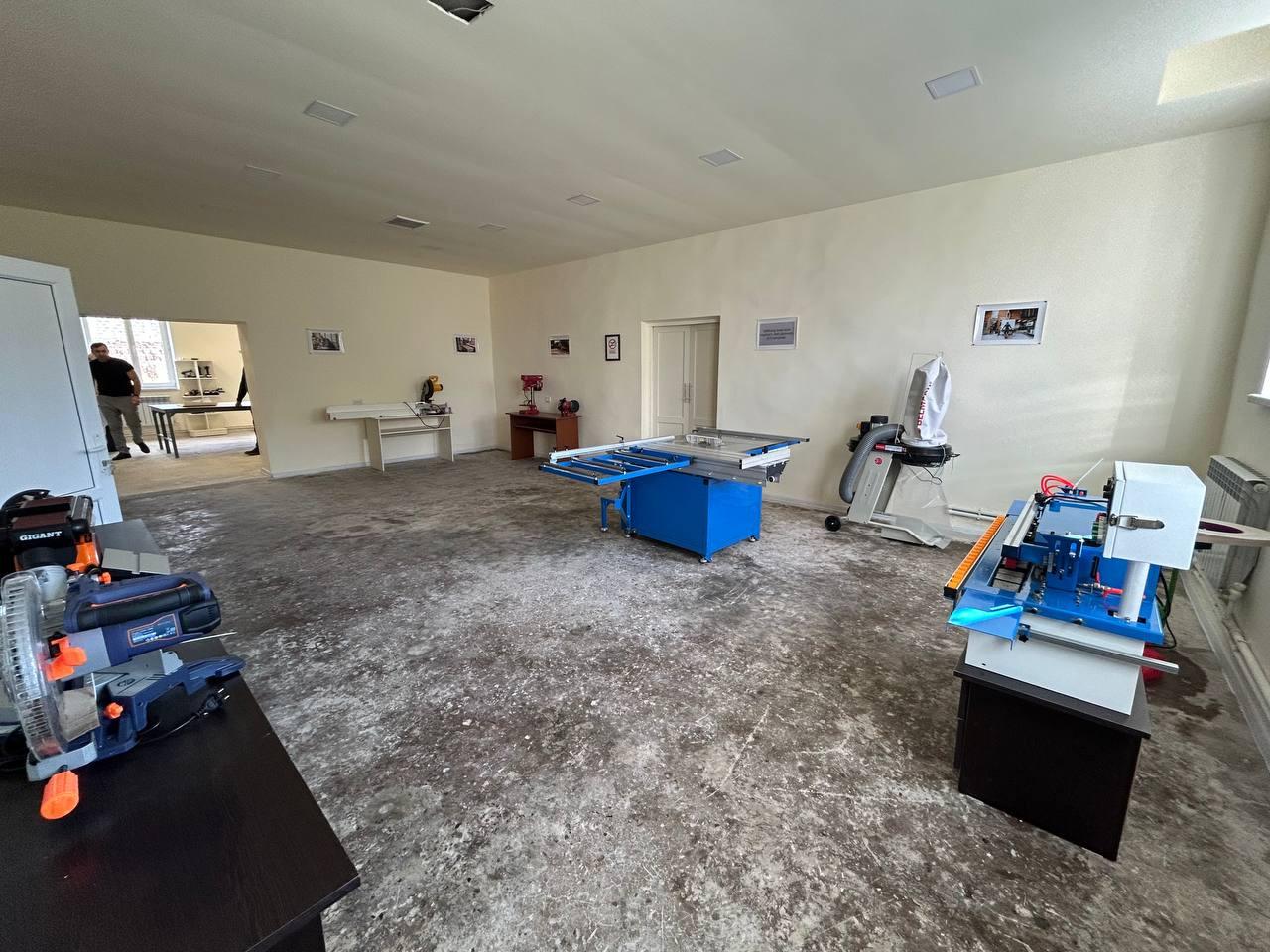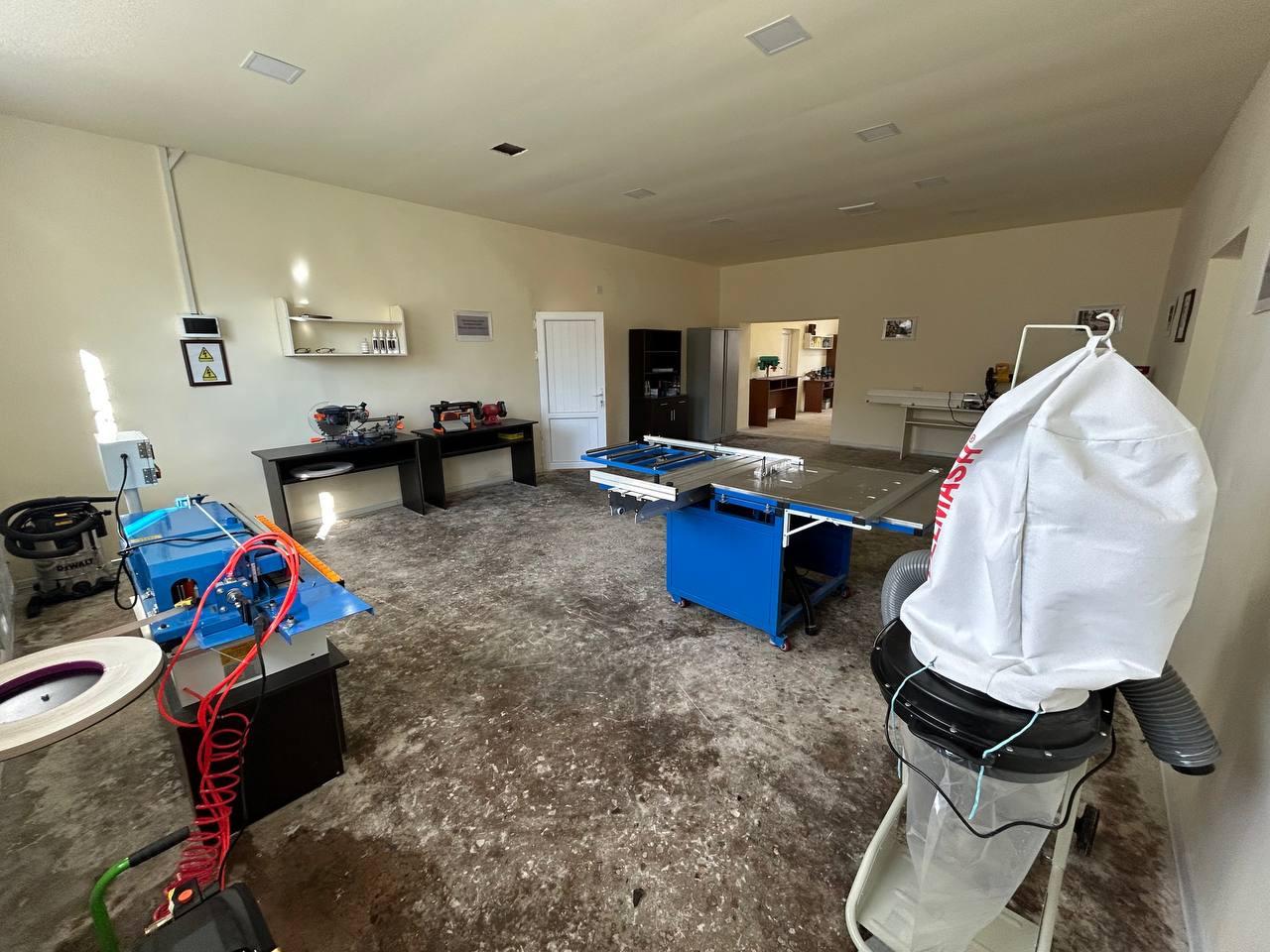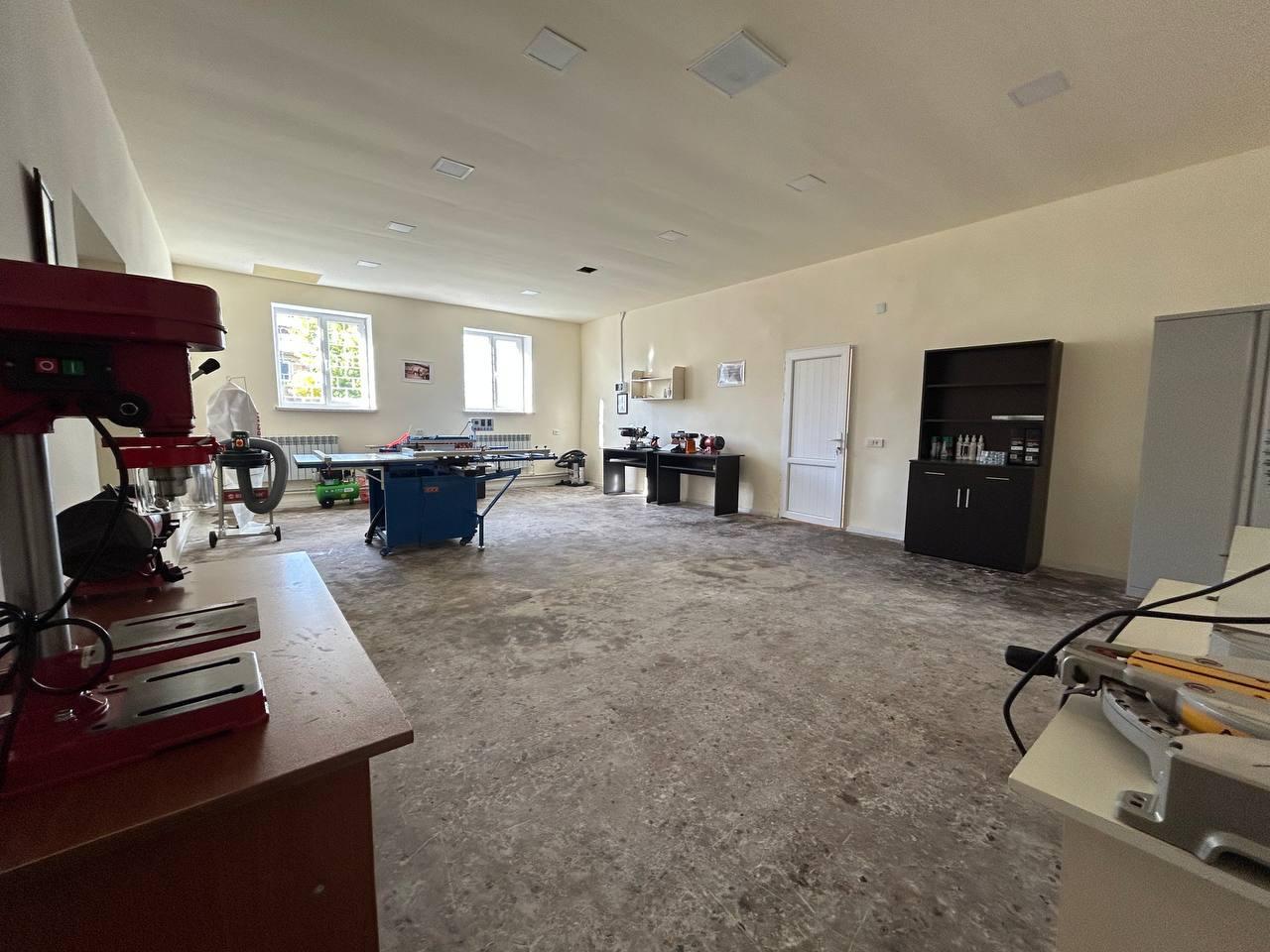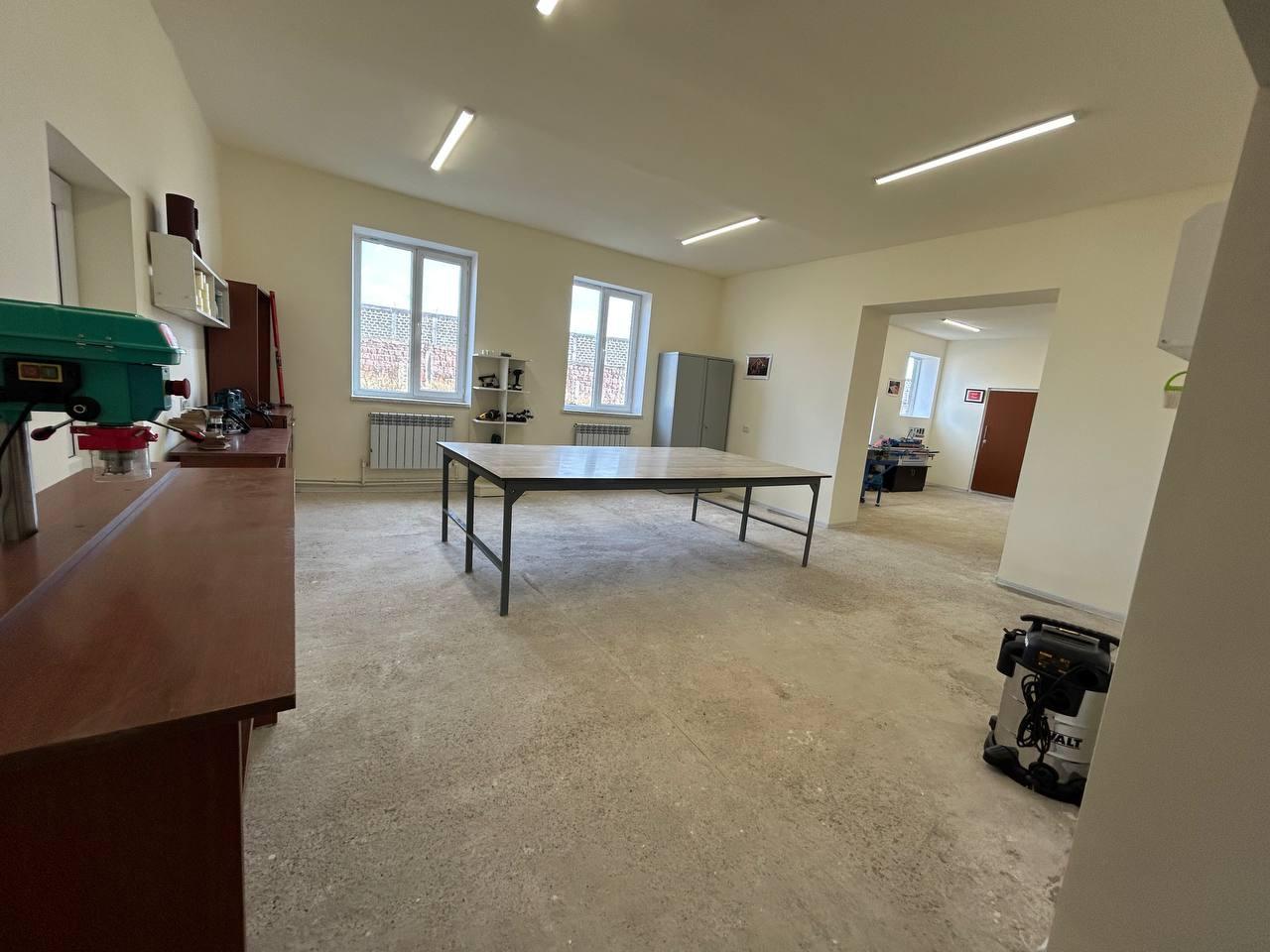
Armenia's Sevan Correctional Facilty Inmates Will Be Employed in Furniture Production
Inmates at Armenia’s Sevan Correctional Facility will soon be employed at a woodworking shop opened on January 21, 2025 with funds provided by aCouncil of Europe (CoE) grant.
First Deputy Head of Armenia's Penitentiary Service Sahak Grigoryan says Armenia's correctional facilities haven't had production workshops since the 1990s. The CoE grant is part of its "Implementation of the Resocialization Program for Persons Deprived of Liberty, Strengthening the Protection of Rights" program.
The workshop is part of a broader program aimed at involving convicts and probation beneficiaries in resocialization efforts. Armenia's new Penitentiary Code, which came into effect in June 2022, is grounded in the ideology of resocialization. The law mandates the creation of educational spaces, gyms, libraries, and employment zones to enable convicts to work, train, and successfully reintegrate into society.
The “Legal Education and Rehabilitation Programs Implementation Center” SNCO of Armenia's Ministry of Justice has been offering furniture-making and pottery courses at the Sevan Penitentiary Institution for approximately two years. Funded by a Council of Europe grant, this year’s courses included beginners as well as convicts who had previously completed the programs and received certificates. The latter group participated to further refine their skills. In total, sixty convicts took part in the courses between 2022 and 2024.
This year, with continued support from the CoE, the penitentiary saw the renovation of 190 square meters of space, along with the purchase of modern machines, tools, and equipment for the workshop. Construction work concluded on October 5, 2024.
“We now have a large workshop that can accommodate about thirty-forty inmates in shifts. They will gain employment, earn a salary while serving their sentence, and support themselves and their families,” says Grigoryan.
Voluntary Participation, Workforce Development, and Internal Benefits
The workshop was established at the Sevan Correctional Facilty because it houses convicts in a medium-security zone. Convicts live under a relatively open regime, and many have previously participated in furniture-making courses, already mastering key woodworking skills and the operation of tools.
Participation in the courses is voluntary.
“Initially, we had to persuade convicts to join, but that has changed. Interest has grown so much that we now face oversubscription and must select participants,” says Tsovinar Tadevosyan, who heaeds Armenia's Penitentiary Service
While most participants are middle-aged, there are no age restrictions or limitations based on the crimes committed. “Resocialization is a process aimed at behavioral change. Therefore, the resocialization committee does not exclude anyone based on their record or behavioral issues,” . Tadevosyan adds.
Notably, inmates with life sentences have also participated and achieved remarkable success. Mr. Grigoryan emphasized that with positive behavior over time, even those convicted of serious crimes can progress to medium-security conditions and take part in rehabilitation.
The Penitentiary Service, in collaboration with the SNCO, conducted market research and identified a high demand for skilled furniture craftsmen.
“Our goal is to equip convicts with skills that will help them stabilize their financial situation upon release and become valuable members of society. Years of experience gained here will make them sought-after specialists,” notes Grigoryan.
Additionally, the workshop will meet internal needs within penitentiary institutions. Many facilities require new furniture—tables, cabinets, and hangers—to replace outdated equipment. “Through this workshop, we can produce what we need in-house and reduce the costs of procurement,” says Grigoryan.
Expanding Programs and Ensuring Long-Term Impact
Armenia has 2,711 inmates, 1,274 of which have been convicted of various crimes. Grigoryan says 60% have expressed a willingness to work if employment opportunities exist.
The SNCO plans to expand resocialization programs to include leatherworking, sewing, welding, and other trades. New workshops will be established at the Artik and Vanadzor Penitentiary Institutions due to the overwhelming success of the Sevan model.
At Artik, for instance, inmates participated in decoration courses by painting the walls of their living spaces, effectively combining skill-building with practical outcomes.
The growing demand for builders and skilled workers in Armenia’s active construction sector has further motivated inmates.
“These trades are expensive to learn on the outside. By providing skills here, we can ensure they do not return to prison after release,” Grigoryan says.“The professional skills of convicts must be elevated to a level where they can produce competitive products and earn wages within our workshops. This will pave the way for a successful reintegration into society, " emphasizes SNOC Director Hayk Sanoyan
Thus, officials across state structures firmly believe that teaching crafts in prisons is the cornerstone of convict resocialization. The skills acquired in the woodworking workshop at the Sevan Penitentiary, funded by the Council of Europe, provide convicts with the means to secure a stable income upon release. This, in turn, serves as a strong safeguard against reoffending and returning to prison.
 Videos
Videos Photos
Photos



Write a comment